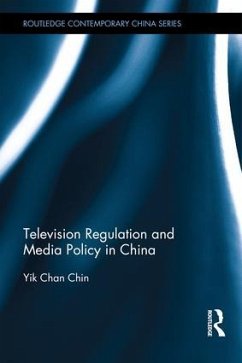An examination of China's national television policy and structure since the late 1990s. It argues that the socialist state-owned TV system is transforming into a commercialized and mixed-ownership system.
This book studies the transformation of the policy and regulation of the Chinese television sector within a national political and economic context from 1996 to the present day. Taking a historical and sociological approach, it engages in the theoretical debates over the nature of the transformation of media in the authoritarian Chinese state; the implications of the ruling party¿s political legitimacy and Chinäs central-local conflicts upon television policy-making and market structure; and the nature of the media modernisation process in a developing country. Its case studies include broadcasting systems in Shanghai and Guangdong, which demonstrate that varied polices and development strategies have been adopted by television stations, reflecting different local circumstances and needs.
This book studies the transformation of the policy and regulation of the Chinese television sector within a national political and economic context from 1996 to the present day. Taking a historical and sociological approach, it engages in the theoretical debates over the nature of the transformation of media in the authoritarian Chinese state; the implications of the ruling party¿s political legitimacy and Chinäs central-local conflicts upon television policy-making and market structure; and the nature of the media modernisation process in a developing country. Its case studies include broadcasting systems in Shanghai and Guangdong, which demonstrate that varied polices and development strategies have been adopted by television stations, reflecting different local circumstances and needs.








